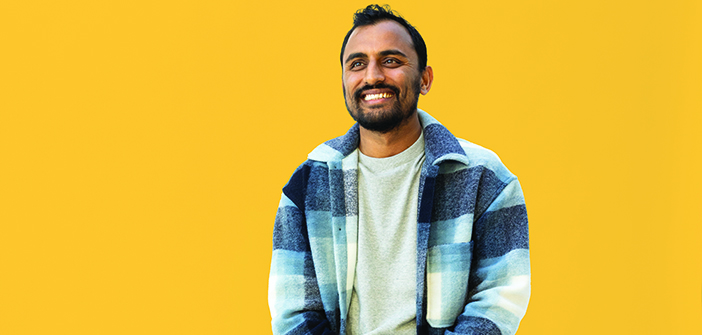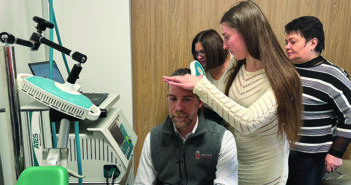An ER physician finds inspiration in Urdu verse.
When Ramu Kharel F’22, MD, MPH, moved to Houston from Nepal at age 13, he struggled to learn English. In high school he took Hindi, which has a script similar to Nepali.
“Hindi was almost a safe space when I think back on it,” says Kharel, an assistant professor of emergency medicine.
He planned to continue those studies in the Hindi Urdu Flagship program at the University of Texas at Austin, where he was pre-med. Then a professor introduced him to the Urdu poetry of Mirza Ghalib, leading the class in an hour-long analysis of a couplet (which Kharel can still recite from memory). It was “amazing,” and ignited a lifelong passion for the art; to this day, he adds, “I think through the lens of poetry,” recalling Urdu couplets in response to life events. “It’s lovely.”
Kharel, a faculty member in Brown’s Global Emergency Medicine division, frequently travels to rural Nepal, where he’s helping to train community health workers to respond to emergencies like bleeding and cardiac arrest. “You don’t need to be a medical graduate to learn some lifesaving procedures,” he says.
His own mother’s death, when he was just 8, inspires his work. “She was very sick and had to be taken to the hospital,” Kharel recalls—an 11-hour journey by foot and then jeep. “I remember her being taken away. But she never returned. … But that’s not just my story,” he says. “People are still living like that.”
LANGUAGE LESSONS
In addition to English, Nepali, Hindi, and Urdu, Kharel can speak basic Spanish with patients. “I’m realizing more and more,” he says, that his language studies are “an integral part of me being a doctor.”
HOOP DREAMS
“In Nepal I played cricket a lot,” Kharel says. “I couldn’t find anyone to play cricket with in Houston, so the easiest sport was basketball.” He still plays every day in Providence.
ALL SHOOK UP
After responding to the 2015 earthquake in Nepal, Kharel chose emergency medicine to help rural communities prepare for future disasters. “The goal is to build resiliency,” he says.
@NAMASTEDOCTOR
Kharel created a TikTok account in Nepali to answer live questions about COVID, and still posts on topics like mental health and trauma care. “Unfortunately, I can’t dance or sing,” he says.
‘THE DAWN OF FREEDOM’
Kharel quotes one of his favorite Urdu poets, Faiz Ahmed Faiz: “Chale chalo ke woh manzil abhi nahi aaie” (Let’s keep moving, the destination is yet to come).




